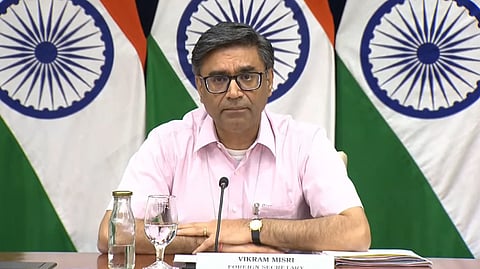

NEW DELHI: India has formally notified Pakistan of its decision to suspend the Indus Waters Treaty with immediate effect, citing repeated violations of the treaty’s terms by Islamabad.
In a letter sent on Thursday, Debashree Mukherjee, India's Secretary of Water Resources, informed her Pakistani counterpart, Syed Ali Murtaza, that continued cross-border terrorism emanating from Pakistan has undermined the treaty framework.
The letter stated, "What we have seen instead is sustained cross-border terrorism by Pakistan," adding that such actions have created "security uncertainties", which hinder India’s ability to fully exercise its rights under the treaty.
India's move comes just a couple of days after a brutal terrorist attack in Jammu and Kashmir's Pahalgam, where 26 people, including tourists, were killed. Following the attack, India announced on Wednesday that it would put the Indus Waters Treaty in abeyance, marking a significant shift in its water-sharing relations with Pakistan.
Signed in 1960 after nine years of negotiations and brokered by the World Bank, the Indus Waters Treaty is a landmark agreement that outlines the sharing of water from the Indus River and its tributaries—Sutlej, Beas, Ravi, Jhelum, and Chenab—between the two countries. The World Bank, which played a central role in the treaty's formulation, is also a signatory.
India's suspension of the treaty signals a hardening of its stance amid rising tensions and repeated ceasefire violations and terror incidents attributed to Pakistan-based groups. Officials in New Delhi argue that continued acts of aggression make it impossible to uphold the spirit of cooperation envisaged under the treaty.
This is the first time India has officially suspended the treaty since its inception, and the move could have far-reaching implications for the already strained bilateral relationship. It also raises questions about future cooperation on transboundary water management in South Asia.
The government has reiterated that the decision is rooted in national security concerns and the consistent failure of Pakistan to uphold its commitments under the treaty.